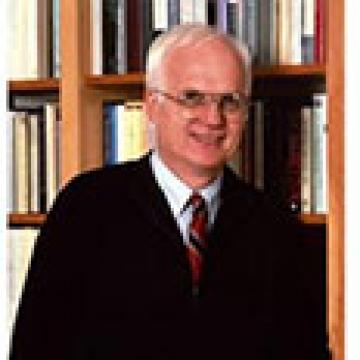William McKinley: Impact and Legacy
President William McKinley's reputation has undergone considerable revision in recent years. For the first sixty years of the twentieth century, historians believed that McKinley had been a weak President pressured into the war with Spain by popular passions and a nationalistic press. Most interpretations held that McKinley's weakness extended to the domestic political arena. McKinley was a managed President, so the thinking went, a chief executive handled by his political cronies, especially Mark Hanna. McKinley, moreover, suffered in comparison to his successor, Theodore Roosevelt, whom historians thought possessed—often in abundance—many of the characteristics that McKinley lacked.
In the 1960s, a new assessment of McKinley emerged, however. Revisionist historians, suspicious of politicians generally and critical of American imperialism, began to portray McKinley as a cunning and manipulative leader bent on expanding American influence in the world. Current scholarship paints a different picture of McKinley: Regarding the Spanish-American crisis over Cuba, he is now viewed as a President who tried mightily to avoid war—in spite of public pressure and flash points such as the sinking of the USS Maine—who acted decisively when all the diplomatic cards had been played, and who asserted great presidential authority over his cabinet and generals.
Recent historians have reinterpreted McKinley's relationship with Hanna as well. They portray McKinley using Hanna for his own ends rather than the other way around, noting Hanna's inability to stop the nomination of Theodore Roosevelt for Republican vice president in 1900 regardless of his protests to McKinley. At almost every turn, McKinley is now viewed as the chief determinant and mover of Republican domestic and foreign policy in the last years of the nineteenth century.
No issue has inspired more spirited debate among scholars than the course of American foreign policy amid McKinley's presidency. During his tenure, the United States acquired overseas territories, fought and won a war with a European power, and attempted to set international norms regarding trade with China. In short, the United States emerged on the world stage in new and unprecedented ways. There is little agreement among scholars, however, on exactly why this occurred. Some historians argue that economic considerations and the search for open markets drove America's foreign policy in these years. Others contend that a sense of moral responsibility—the "white man's burden"—led America into Cuba and the Philippines. Geostrategic concerns, according to other scholars, launched the United States on an imperial path. Still other historians assert that a desire to protect and enhance notions of America's "manhood" led the United States into conflict in Cuba and toward imperialism.
Each of these explanations has strengths and weaknesses, with none proving completely satisfactory. In contrast, a consensus is emerging among scholars on the ways in which McKinley helped create the modern presidency. His use of the telephone, the press, and publicity to conduct and manage war and political campaigns became staples of his successors. He invited the nation's press to regular briefings by him or his assistants, establishing the forerunner of the presidential press conference. He understood the political advantage to be found in the use of mailings and printed propaganda. He greatly expanded the presidential staff, and he traveled widely across the nation making speeches, attending public ceremonies, and meeting his constituency.
Even so, the McKinley years merely suggested the changes that would occur to the American presidency during the twentieth century. McKinley was not a charismatic leader, and he did not inject drama into presidential affairs like his successors, especially the two Roosevelts and Wilson. Nor did he try to use his office as a bully pulpit to rally Americans to his policies and programs—initiatives which, in themselves, were small in scale compared to those put forward by his successors. Rather, William McKinley was an affable man and an astute and patient politician whose political skills and confidence enabled him to make firm decisions even when they were not popular ones. He did not reinvent the presidency, but he did work very successfully within the prevailing limitations and conception of the office.
